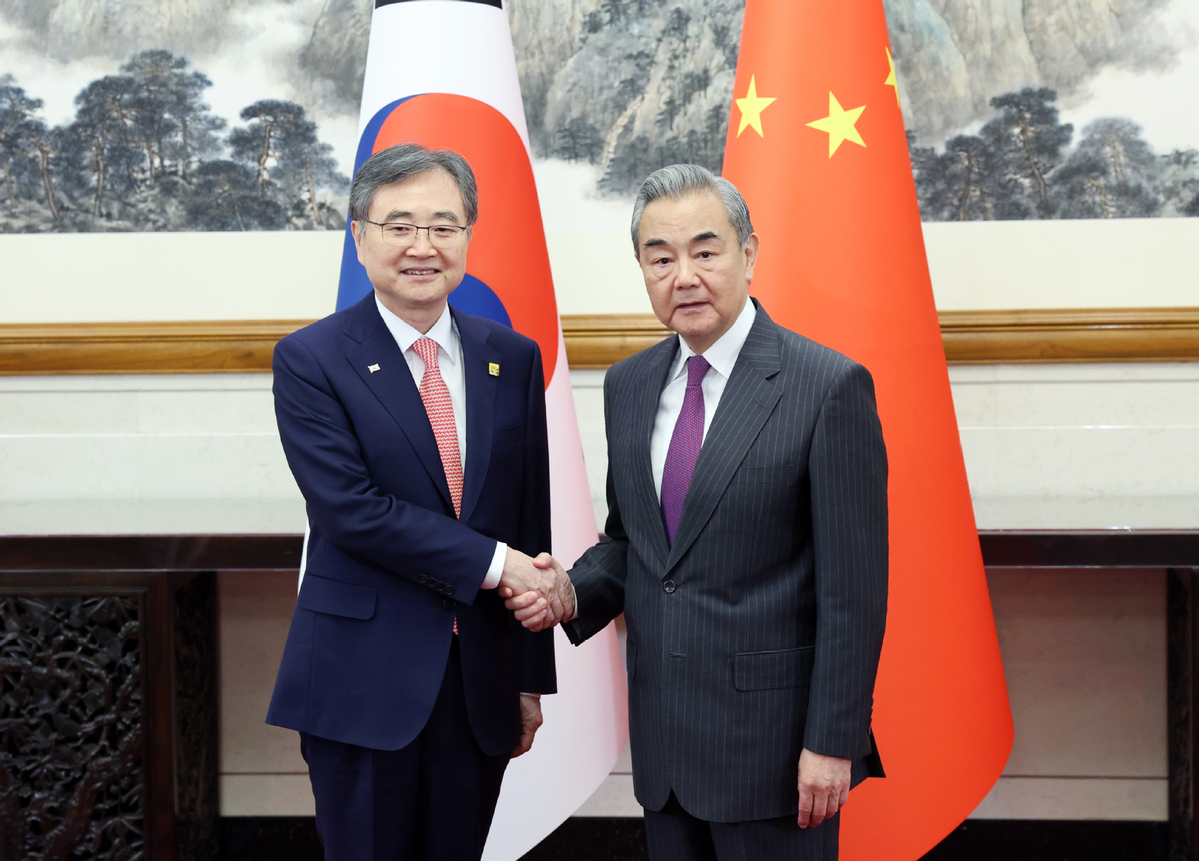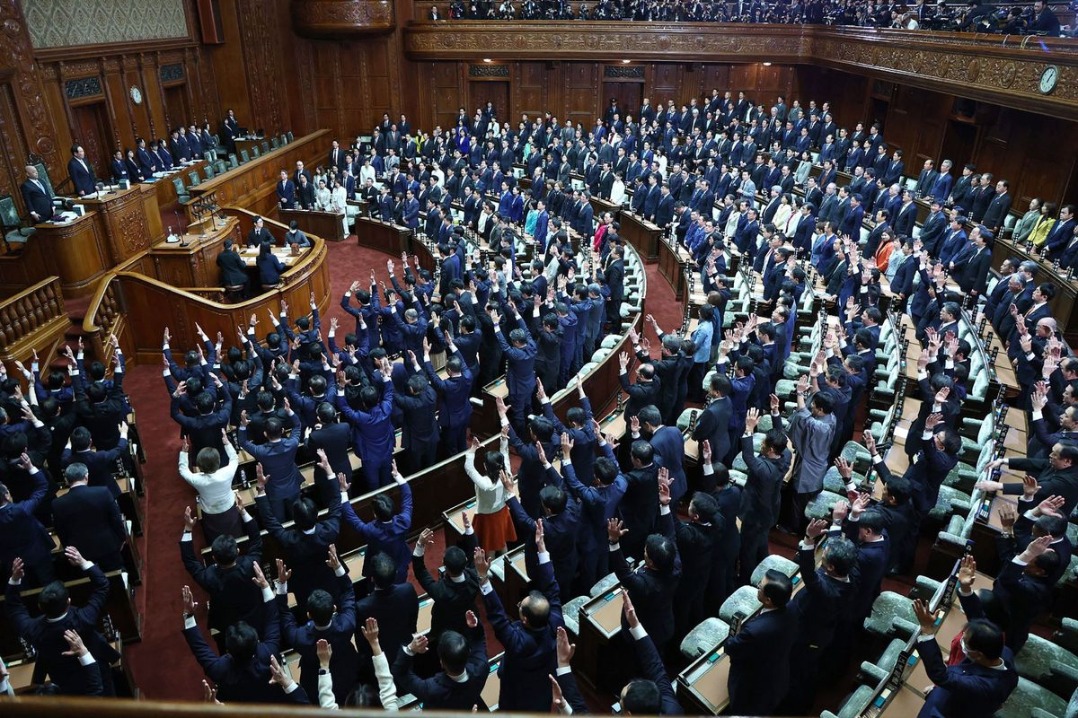FM calls for sincere China, ROK relations
Touching stories of two peoples should be highlighted, promoted, Wang Yi tells Cho Hyun


The first foreign ministerial exchange between China and the Republic of Korea since the inauguration of the Lee Jae-myung government in the ROK demonstrates the pragmatic approach of Seoul and the importance it attaches to its relationship with Beijing, analysts said, highlighting the importance of maintaining this momentum for improving bilateral ties.
On Wednesday, Foreign Minister Wang Yi met with ROK Foreign Minister Cho Hyun, who made a one-day visit to Beijing.
During their meeting, Wang, who is also a member of the Political Bureau of the Communist Party of China Central Committee, reiterated that China's policy toward the ROK remains stable and consistent. He encouraged both sides to treat each other sincerely, strengthen mutual trust, deepen cooperation and achieve win-win results, while properly managing sensitive issues.
As beneficiaries of economic globalization, the two countries should jointly oppose trade protectionism and uphold the international free trade system, Wang added.
Cho said the ROK values the momentum in improving bilateral relations, and is willing to work with China to further strengthen high-level exchanges and deepen cooperation in trade, culture and other fields.
Both sides agreed to coordinate and support each other in successfully organizing the Asia-Pacific Economic Cooperation meetings. The ROK will host the APEC Economic Leaders' Meeting in Gyeongju from Oct 31 to Nov 1. China will host the meeting next year.
According to ROK media reports, one of the major objectives of Cho's Beijing visit was to seek confirmation of the Chinese leader's attendance at the APEC meeting, as the event is an important opportunity for the two countries to strengthen high-level exchanges.
Chinese Ambassador to the ROK Dai Bing said in a speech on Tuesday that relations between Beijing and Seoul are independent and autonomous, and they do not target, or are not affected by, any third party.
Despite the increasing industrial competition, the strategic and mutually beneficial nature of bilateral cooperation has not changed, Dai said, calling on the two sides to cooperate in emerging sectors such as artificial intelligence, advanced manufacturing, biomedicine and the maritime economy.
Wang Junsheng, a researcher at the Chinese Academy of Social Sciences' National Institute of International Strategy, said that economic cooperation is an important aspect of China-ROK ties. Bilateral economic cooperation should be consolidated and expanded, especially in high-tech areas, he said, emphasizing that efforts should be made to ensure that such cooperation is not affected by politics, ideological differences or security concerns.
What matters most is ensuring that the relationship between China and the ROK enjoys strategic autonomy, and that it is not subordinated to or constrained by the ROK's alliance with the United States, the researcher said. Washington holds the most important position in Seoul's diplomatic strategy, but that does not mean China-ROK relations should be neglected, he added.
Li Jiacheng, an associate professor at Liaoning University's School of International Studies, said the new ROK administration has already expressed its willingness to develop relations with China on a par with other major powers, so now it is necessary for Seoul to convey a clear message that it will continue to advance its engagement with Beijing.
During his meeting with Cho, Foreign Minister Wang mentioned the recent rescue of a Chinese national by an ROK Coast Guard officer, who lost his life in the process, as well as an incident in June in Zhangjiajie, Hunan province, in which a Chinese driver risked his life to protect the safety of more than 10 ROK passengers.
There are many such touching stories of friendship between the people of China and the ROK, which are worth highlighting and promoting to continuously strengthen the friendly feelings between the two peoples, Wang Yi said.
Experts said that amid declining mutual public favor, it is important to promote positive narratives to foster goodwill between the two peoples.
zhoujin@chinadaily.com.cn
































